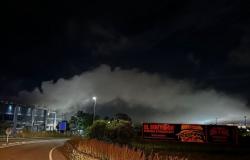Faced with the outbreak of prices and the shortage of the national herd, Morocco exceptionally suspends the celebration of Eid Al-Adha 2025, on high royal instructions. This decision aims to preserve social equity in a difficult economic context. However, it raises many questions about the applicable legal framework, especially for those who would still like to fulfill the ritual of the sacrifice. A legal vacuum persists and fuels controversy.
As Eid Al-Adha 2025 approaches, a historical decision turned upside down the habits of Moroccans: on instructions from His Majesty King Mohammed VI, the feast of sacrifice will not be celebrated this year. A decision justified by a double crisis: the shortage of national livestock and the strong pressure on purchasing power, especially among the most vulnerable populations.
The rarity of available sheep, a direct consequence of several years of drought, the rise in food prices for livestock and mismanagement of the sector, makes it impossible for the regular and affordable supply of markets. Added to this is a difficult economic situation, which does not allow a large fringe of the population to endure the high cost of a sheep, which has become a luxury for many.
Read also: Eid al-Adha 1446 scheduled for Saturday, June 7 according to astronomical calculations
-However, this exceptional ban raises several questions, including legal. In the absence of a clear law, a vagueness persists on the consequences for those who would decide, despite everything, to acquire and slaughter a sheep on the day of Eid. Rumors circulate on the existence of sanctions ranging from 1,000 to 5,000 fine dirhams for offenders. For the time being, no official authority has confirmed or deny this information, which fuels confusion and tensions in public opinion.
In certain rural areas or in easier circles, citizens affirm their will to celebrate the ritual, believing that it is a personal religious act. Others call for national solidarity and salute the royal decision as a strong gesture in favor of social equity, by avoiding visible cleavages between those who can afford the sacrifice and those excluded from it.
The suspension of Eid Al-Adha 2025 highlights the absence of a suitable legal framework to supervise exceptional decisions in times of crisis. This legislative vacuum raises important challenges in matters of social equity, especially in the face of practices that are both religious, cultural and economic. In a context marked by tensions linked to purchasing power, this exceptional measure underlines the need for clearer regulation of collective rituals, in order to avoid any form of disparity or confusion within the population.








